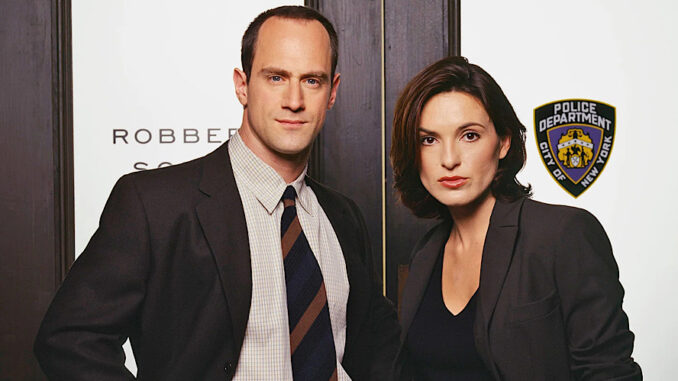
The Unfurling Banner: How Benson’s Evolution Changed Mariska Hargitay’s Life and TV Forever
The name Olivia Benson is not merely a character; it is a cultural touchstone, a silent scream, and a defiant whisper rolled into one. For over two decades, audiences have watched Mariska Hargitay breathe life into the detective, then sergeant, then lieutenant, and now Captain and Commander, of the Special Victims Unit. What began as a compelling procedural role has evolved into an epic narrative of resilience, empathy, and institutional change, a journey that has not only redefined Hargitay’s life but irrevocably altered the very fabric of television.
Olivia Benson’s evolution on Law & Order: SVU is an extraordinary masterclass in character development, reflecting and influencing societal shifts in our understanding of trauma. She began as a gritty, intelligent detective, partnered with the volatile Elliot Stabler, her empathetic nature often a counterpoint to his righteous fury. In those early years, Benson was reactive, chasing perpetrators and comforting victims, her personal life a tumultuous backdrop to her dedication. But as the seasons unfurled, so did Benson. She survived unspeakable personal traumas – abductions, the loss of her partner, the harrowing pursuit by William Lewis, and the profound journey of adopting her son, Noah. Each crucible forged her into something stronger, more nuanced, and deeply rooted in her purpose. She learned not just to advocate for victims, but to confront the systemic failures that often compounded their suffering. Her rise through the ranks from detective to commanding officer wasn’t just a plot device; it was an embodiment of a woman gaining institutional power, using her hard-won wisdom to dismantle barriers and reshape the very system she served. Benson became less about solving the crime and more about healing the victim and reforming the system.
This profound, relentless evolution of Benson wasn’t confined to the screen; it permeated Mariska Hargitay’s existence, transforming her from acclaimed actress into a powerful, real-world advocate. Initially, Hargitay admits, she found it difficult to leave Benson at the studio, often carrying the weight of the fictional victims home. But then, a seismic shift occurred. Letters from viewers began pouring in – not just fan mail, but heartfelt confessions from survivors of sexual assault and domestic violence, thanking Benson for giving them a voice, for making them feel seen and believed. This deluge of raw, personal stories became Hargitay’s “aha!” moment. She realized the profound, unscripted impact her character was having. This realization birthed the Joyful Heart Foundation in 2004, an organization dedicated to transforming society’s response to sexual assault, domestic violence, and child abuse, and supporting survivors’ healing. Hargitay didn’t just lend her name; she became its driving force, fiercely campaigning against the national rape kit backlog, testifying before Congress, and using her platform to shine a light on the darkest corners of human experience. Her life, once primarily focused on her craft, found an unparalleled purpose, blurring the lines between actress and activist, Mariska and Olivia, in a way few performers ever experience.
Beyond the personal, Hargitay’s enduring portrayal of Benson, and the character’s unwavering arc, fundamentally changed television forever. SVU broke the mold, proving that a show centered on such sensitive and often brutal topics could not only survive but thrive for decades, becoming one of the longest-running prime-time live-action series in television history. More crucially, it demonstrated that a female protagonist, a woman often navigating personal pain while fighting for justice, could lead such a monumental charge. Benson became a new kind of TV hero – not just a brave cop, but an icon of unflinching empathy and persistent, compassionate strength. The show normalized conversations around sexual violence, domestic abuse, and human trafficking on network television, bringing these once-taboo subjects into millions of homes weekly, forcing viewers to confront uncomfortable truths. It didn’t shy away from the complexities of trauma, the failures of the justice system, or the long road to healing, elevating the procedural format from episodic crime-solving to an ongoing, evolving social commentary. SVU, through Benson’s eyes, became a cultural mirror, reflecting societal prejudices and offering glimmers of hope and systemic solutions, ultimately changing how television tackles difficult subjects and how audiences perceive the power of a resilient, empathetic female lead.
In essence, Mariska Hargitay didn’t just play Olivia Benson; she embodied a movement. Benson’s journey from a detective on the streets to a commander reshaping institutions is a vivid testament to the power of a single, deeply drawn character to resonate far beyond the screen. It is a testament to Hargitay’s own profound connection to the role, which spurred her to found a foundation that has impacted countless lives. And it is a testament to Law & Order: SVU‘s audacity to confront the uncomfortable, showing the world that powerful, empathetic storytelling can not only entertain but educate, inspire, and, indeed, change the world – and television – forever. The banner of Olivia Benson, unfurled by Mariska Hargitay, continues to wave, a symbol of justice, healing, and an enduring fight for a more compassionate future.
